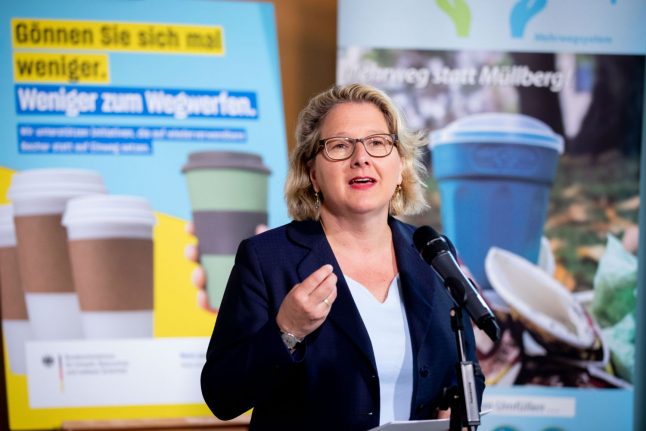Disposable coffee cups are slated to become more expensive for manufacturers in order to push back (zurückdrängen) their use, according to a plan announced by German environment minister Svenja Schulze on Tuesday in Berlin.
This could occur either through a fund into which manufacturers pay in order to finance the clean up of disposable products (Die Wegwerf-Produkte), or by directly increasing the costs in which manufacturers pay for the cups, said Schulze.
The changes will also hit consumers. Germany’s Federal Environment Agency (Das Umweltbundesamt) is proposing surcharges (Die Zuschläge) of about 20 cents per cup and 10 cents per lid to make disposable cups more expensive than the alternatives.
The SPD politician also said she is striving for an agreement with the catering industry to use more reusable cups (Die Mehrweg-Becher).
Many cafes and coffee stands in Germany already offer a discount, usually of 10 cents, to customers who bring their own cups. In the past couple of years, some coffee chains have also begun selling their own reusable coffee cups.
Cups made of foamed plastic (Der Kunststoff), which are not quite as common as paper cups in Germany, are also to be banned in German through a new EU directive. It will also ban disposable plastic cutlery and plates or balloon rods from shop shelves from 2021.
SEE ALSO: EU Parliament votes to ban single-use plastics
Schulze said she wanted to speed up the process in Germany, and is currently discussing it with German industry.
In 2016, 2.8 billion disposable cups were used in Germany – including not only the classic cups for coffee “to go”, but also those from vending machines (Die Getränkeautomaten). Six out of ten were paper cups contained a plastic coating, while the others consisted only of plastic.
Coffee drinkers also disposed of 1.3 billion plastic lids, mainly for paper cups, according to a study by the Federal Environment Agency.
SEE ALSO: How Germany’s environment minister plans to turn around plastic use
This is a German language article, in which we have embedded translations of some keywords into the text. Did you find it helpful? We are always happy to hear your suggestions of how to improve our articles at [email protected].



 Please whitelist us to continue reading.
Please whitelist us to continue reading.
Member comments